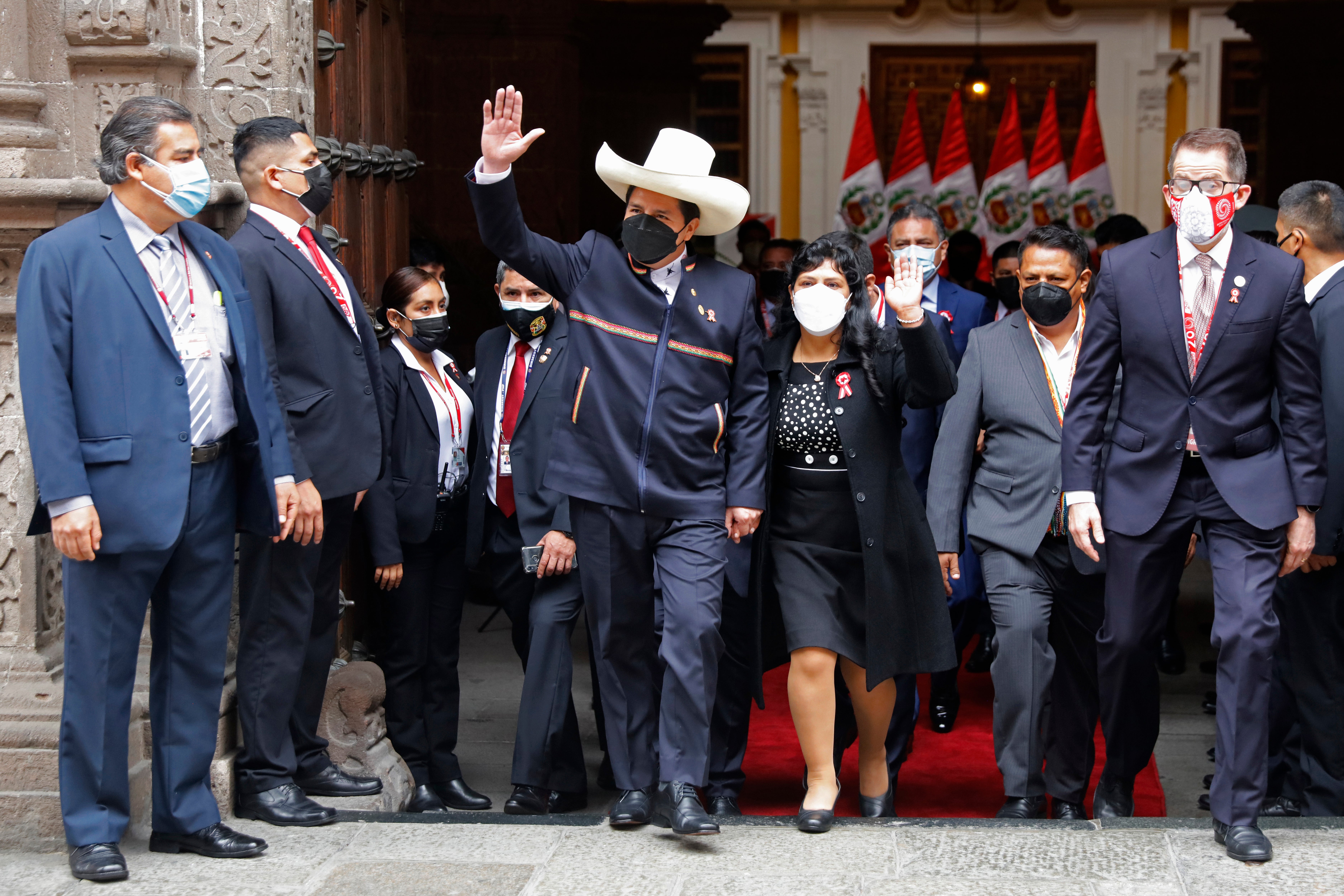Peru prosecutors to probe plagiarism claim against president
Peru’s prosecutor’s office has said it is investigating President Pedro Castillo and his wife for alleged plagiarism after a television station said an investigation showed the couple may have copied more than half the master’s thesis they co-authored

Peru’s prosecutor’s office announced Thursday that it is investigating President Pedro Castillo and his wife for alleged plagiarism after a local television station said an investigation showed the couple may have copied more than half the master’s thesis they co-authored.
Panamericana television’s Panorama program used a transparency request to obtain the text of the 121-page thesis and submitted it to the plagiarism detection service Turnitin. Panorama said the couple appeared to have plagiarized 54% of it from other authors.
The station also said that two of the three professionals who validated the thesis do not exist in the national identity registry. Castillo and his wife Lilia Paredes, both primary school teachers in Tacabamba district, used the thesis for a master’s degree in educational psychology from César Vallejo University more than a decade ago.
The probe is being carried out by a prosecutor in Tacabamba. César Vallejo University has also appointed a commission to investigate.
Castillo has denied plagiarizing his thesis and called the accusations “malicious” and part of “a destabilizing plan” against his government.
“The thesis work was validated by quality educational standards,” he has said in a statement. He also said his academic work had an adviser and was supported by a jury that granted him the degree.
Aggravated plagiarism is punishable by up to 8 years in prison and generic falsehood with up to four years in prison.
Accusations of plagiarism in Peru are not new. Two of Castillo’s ministers have already faced similar charges.
Castillo, a rural schoolteacher in a poor Andean district, took office last July and has since gone through four Cabinets and survived two impeachment attempts in 10 tumultuous months in office.